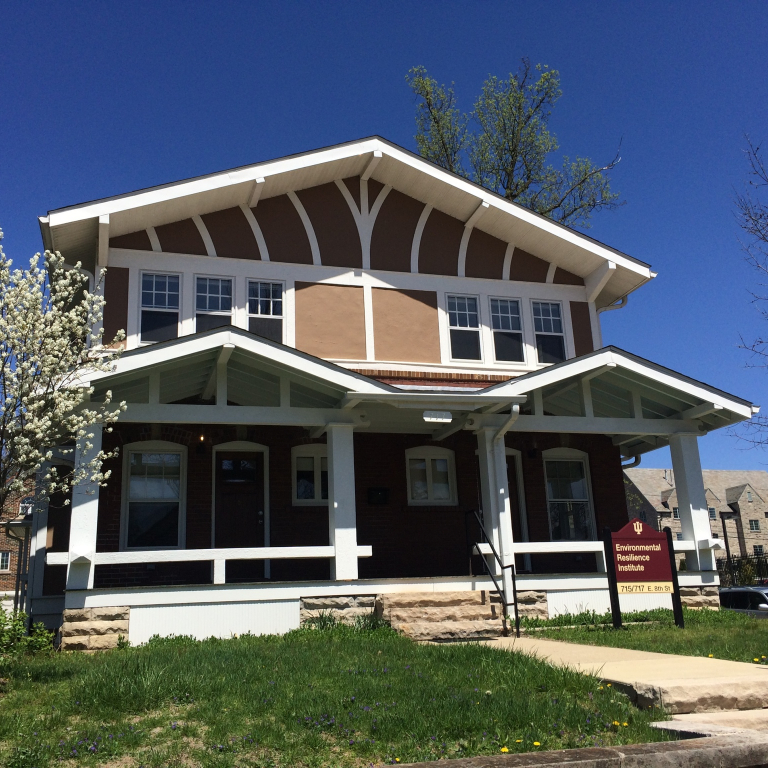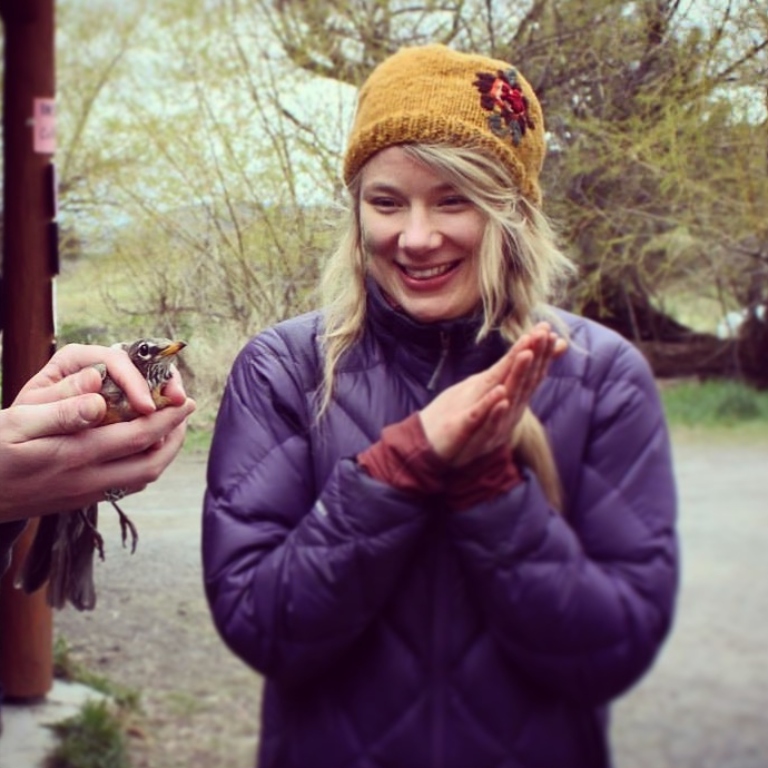The Brabson Library and Educational Foundation has awarded two research teams affiliated with Indiana University’s Environmental Resilience Institute (ERI) grants totaling nearly $37,500 to develop K-12 educational lessons on climate change and to expand research into bird-killing window strikes on the IU Bloomington campus.
Philanthropic support from private foundations, individuals, and businesses plays a critical role in enabling ERI to help prepare Indiana for the effects of climate change. To learn more about supporting ERI, contact Abby Henkel.
The grants were awarded to support the Florida-based family foundation’s passion for bold, innovative ideas that may have a significant and long-term impact especially in education and the arts.
The foundation awarded $30,000 to Educating for Environmental Change (EfEC), a collaboration between IU faculty, K-12 educators, and the WonderLab Museum of Science, Health, and Technology, to develop a series of one-day workshops and climate change education programs that will help prepare teachers to better educate students on the science and impacts of climate change. The workshops and lessons will focus on four topic areas: global and regional climate modeling, climate adaptation and geoengineering, climate change and natural disasters, and climate justice and activism.
“The Brabson Library and Educational Foundation supports projects that propose novel ideas in learning, ones that are not always found in the formal education sphere,” said Ben Brabson, a member of the foundation board. “These workshops and materials greatly expand the reach of climate science into the K-12 curriculum. Society’s success in addressing climate change depends directly on educational efforts like this.”
The grant will allow EfEC team members to build upon an award-winning environmental education and professional development program that has connected more than 160 teachers and thousands of students to environmental experts and classroom-ready resources. The lessons developed through the grant will be made available online to anyone at no cost.
“Each lesson will be co-designed and reviewed by our team of IU science faculty and graduate students, IU School of Education faculty, and local veteran science teachers,” said Adam Scribner, an EfEC co-principal investigator and IU Director of STEM Education Initiatives. “These lessons will help inform students in Indiana and beyond about how climate change affects more vulnerable populations and how science, technology, and engineering can create a more equitable and sustainable future for everyone.”
“This project offers an extraordinary opportunity for IU faculty and student scholars to apply their academic expertise toward a pressing societal need: the scientific challenge of climate change and the societal challenge of engaging our communities on effective means to address it,” added IU Professor of Earth and Atmospheric Sciences Michael Hamburger, a co-PI on the project.
The foundation also awarded $7,437 to help IU researchers better measure the impact of campus buildings on bird populations and to develop strategies to make the university safer for birds. Many bird populations are in steep decline and window strikes are partly responsible. The project is led by Sarah Wanamaker, an ERI research associate.
The additional funding will allow Wanamaker to expand on a preliminary campus survey she conducted in the fall of 2020, which documented 88 fatal window strikes across two months. The research team can now expand its search area and increase the number of monitored buildings during the fall 2021 migratory season. In addition to collecting and analyzing data, the team is also creating and publicizing a “Lights Out” campaign to alert the campus community to the danger night-time lighting poses to birds, especially during periods of migration.
“In its efforts to support novel forms of education, the Brabson Library and Educational Foundation is fully aware of the importance of bringing young scientists into the world of research,” Ben Brabson said of the project. “Investigating avian window strikes is an excellent example of a simple research project that starts the scientific careers of several young investigators. The fundamental idea of solving problems by collecting reliable data is central to all learning.”
Wanamaker’s bird strikes project has also recently received funding from the Amos Butler Audubon Society.
“Ultimately, the data from our studies will be used to raise awareness on the issue of bird-building collisions,” explained Wanamaker. “Working with our partners, such as the City of Bloomington and IU building managers, our mission is to reduce bird deaths by promoting bird-safe buildings and save energy reducing nighttime lighting.”






